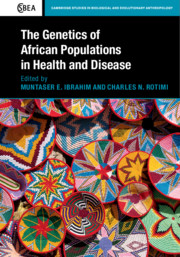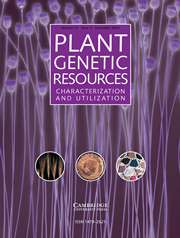Genetic Variation and Human Disease
Recent developments in molecular and computational methods have made it possible to identify the genetic basis of any biological trait, and have led to spectacular advances in the study of human disease. This book provides an overview of the concepts and methods needed to understand the genetic basis of biological traits, including disease, in humans. Using examples of qualitative and quantitative phenotypes, Professor Weiss shows how genetic variation may be quantified, and how relationships between genotype and phenotype may be inferred. This book will appeal to many biologists and biological anthropologists interested in the genetic basis of biological traits, as well as to epidemiologists, biomedical scientists, human geneticists and molecular biologists.
- Topical subject (human genome project is very high profile)
- Good reviews for hardback edition
- No other up-to-date book covers this range of topics
Reviews & endorsements
"...a most useful reference for those who wish to familiarize themselves with the area in general and to gain some comprehension of its methodologies." Roger W. Melvold, Doody's Health Science Book Review Journal
"...provides an overview of the concepts and methods needed to understand the genetic basis of biological traits, including disease, in humans. Using examples of qualitative and quantitative phenotypes, Professor Weiss shows how genetic variation may be quantified, and how relationships between genotype and phenotype may be inferred....will appeal to a wide range of biologists and biological anthropologists interested in the genetic basis of biological traits, as well as to epidemiologists, biomedical scientists, human geneticists and molecular biologists." Human Genome Abstracts
"...provides a comprehensive yet readable account of concepts and methods new to genetic epidemiology and molecular biology, which allows examination of the genetic basis of biological traits." N. Krusko, Choice
"...well-documented, clearly written, scholarly text...will certainly be valuable to students of genetics, epidemiology, molecular biology and biological anthropology, and to all who are interested in solving the molecular etiology of disease phenotypes and in studying the human gene pool and its behavior throughout evolution." Trends in Genetics
"...the value of the book lies in the mixing of quantitative methods of empirical findings of modern biology." Jonathan Flint, Times Higher Education Supplement
"This is a very fine and rewarding work. We find here no less than an explanation of the current status of, and a means for understanding, the rising flood of information on human genetic variability." William Klitz, Quarterly Review of Biology
Product details
January 1995Paperback
9780521336604
380 pages
229 × 152 × 21 mm
0.56kg
71 b/w illus. 42 tables
Available
Table of Contents
- Preface
- Part I. Genes and Their Expression:
- 1. What is a gene?
- 2. The logic of the genome
- 3. Concepts of frequency and association in populations
- 4. Genes and phenotypes in populations
- Part II. Introduction to Genetic Epidemiology: Inference from Observational Data:
- 5. Segregation analysis: discrete traits in families
- 6. Segregation analysis: quantitative traits in families
- 7. Linkage analysis: finding and mapping genes for qualitative traits
- 8. Linkage analysis: finding and mapping genes for quantitative traits
- Part III. Evolution: The Time Dimension in Populations:
- 9. Genes over time and space
- 10. Reconstructing history: the footprints of evolution
- 11. Evolution generates heterogeneity
- Part IV. Modification of the Inherited Genotype: The Time Dimension in Individuals:
- 12. Phenotype amplification by the environment
- 13. Infectious disease: the response to biological challenge
- 14. Variation within the inherited genotype
- 15. Cancer and ageing: a microcosm of evolution during life
- Afterwords: towards a unified general model
- Conclusion
- Notes
- References
- Index.










